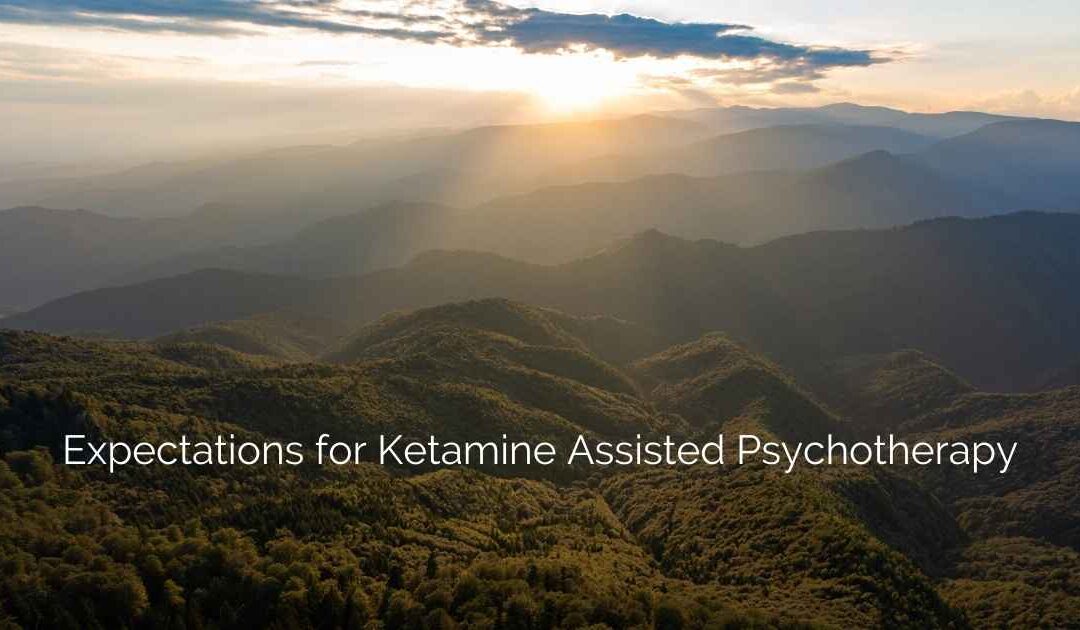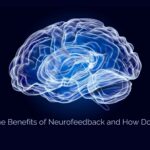There has long been a need for more effective and efficient treatment approaches to address the devastating impact mental health problems have across society. Public interest has been progressively piqued by a recent renewal in psychedelic research, as there is strong evidence that clinical use of psychedelic substances could help treat mental health problems such as chronic depression, anxiety, and Post-traumatic Stress Disorder more effectively than many existing treatments. The research findings have been promising to the extent that mainstream media is increasingly bringing psychedelics such as ketamine, psilocybin (Magic Mushrooms), and MDMA (Ecstasy) into the public eye while billing them as “miracle treatments” that could revolutionize the mental health field. While the excitement and buzz around psychedelic treatments make sense in many ways, it is also essential to have realistic expectations about what psychedelic treatments can achieve. They can be powerful tools but are not a “miracle cure.” Moreover, it is also important to have a realistic understanding of what work is required to achieve admittedly promising outcomes. Here are some ways to think about psychedelic treatments that can illuminate the incredible possibilities they hold while also appropriately balancing expectations about the process, experience, and outcomes.
Psychedelics work best in tandem with therapeutic support.
 Research has demonstrated that coupling therapy with psychedelic work can produce better mental health outcomes. When used in appropriate healing contexts, psychedelic medicines have powerful biochemical effects that can be integral to the healing process. These biochemical effects help facilitate emotional and behavioral changes; however, using the medicine without therapeutic support can have unpredictable consequences. Your psychedelic experience might be intense, unsettling, or profoundly significant, and it is not advisable to take on these experiences alone. It is important to enlist the support of a therapeutic guide who can help you establish an open, productive mindset, create a safe setting to do the work, and frame your intention for what you hope to gain from the experience. Moreover, a guide will help hold space for you while you experience the medicine, help you process and integrate new insights that emerge, and help manage any emotionally or spiritually challenging experiences. Psychedelic work is not always easy. There is a lot of surrender in the work as you cannot completely control your experience. Having access to supportive guidance in a safe setting can make all the difference in helping you gain the most from the work you do.
Research has demonstrated that coupling therapy with psychedelic work can produce better mental health outcomes. When used in appropriate healing contexts, psychedelic medicines have powerful biochemical effects that can be integral to the healing process. These biochemical effects help facilitate emotional and behavioral changes; however, using the medicine without therapeutic support can have unpredictable consequences. Your psychedelic experience might be intense, unsettling, or profoundly significant, and it is not advisable to take on these experiences alone. It is important to enlist the support of a therapeutic guide who can help you establish an open, productive mindset, create a safe setting to do the work, and frame your intention for what you hope to gain from the experience. Moreover, a guide will help hold space for you while you experience the medicine, help you process and integrate new insights that emerge, and help manage any emotionally or spiritually challenging experiences. Psychedelic work is not always easy. There is a lot of surrender in the work as you cannot completely control your experience. Having access to supportive guidance in a safe setting can make all the difference in helping you gain the most from the work you do.
Psychedelics bring what we need but not necessarily what we expect.
Healing is not always a linear process and might not always take the course we expected. The human mind is immensely complex, and the ways it works to initiate its own healing are also complex. You might think you know what type of growth or healing you are after when you choose to use psychedelic medicines, but the process may play out much differently than you had imagined. For example, you might have a healing intention to improve your patience while parenting but find that your psychedelic experience is much more about dealing with anger or sadness from your childhood. There are many ways to interpret this outcome, but one idea is that to become a more patient parent, your brain determined that you must come to terms with your feelings of anger toward your parents. Although this work might seem somewhat distant from your original intention, there is a strong argument that the material that arose is deeply intertwined with the initial intention. If we can operate with the assumption that psychedelic experiences bring what we need instead of what we want, we can maximize the potential growth that comes from the work; even if we end up with an experience, we didn’t expect.
Psychedelics help open the paths, but we are the ones who must traverse them.
 Psychedelic medicines can open the door for growth and healing, but we are the ones who must do the actual work. Psychedelics give us a unique opportunity to think, feel, experience, and connect with ourselves and our lives using a very different and illuminating lens. This can be a powerful perspective but does not on its own initiate active change. We ourselves are the agent of change, even as psychedelics might help illuminate the direction we must go to achieve the healing we desire. Typically, the medicine helps us shed light on the emotions, experiences, traumas, and beliefs buried inside us. Still, to shift in these areas, we must take active steps to interpret and apply new insights or learn from the psychedelic experience. Using the example above, if you desire to be a better parent but learn during your psychedelic experience that you are still carrying around childhood anger toward your parents, the work you are tasked with is centered on understanding and working through said anger. This work might sound complicated or even somewhat undesirable, but this is where the most significant opportunities for growth are. If you attend to the work shown to you, you will likely find yourself closer to achieving the initial goals you set for yourself in your psychedelic work.
Psychedelic medicines can open the door for growth and healing, but we are the ones who must do the actual work. Psychedelics give us a unique opportunity to think, feel, experience, and connect with ourselves and our lives using a very different and illuminating lens. This can be a powerful perspective but does not on its own initiate active change. We ourselves are the agent of change, even as psychedelics might help illuminate the direction we must go to achieve the healing we desire. Typically, the medicine helps us shed light on the emotions, experiences, traumas, and beliefs buried inside us. Still, to shift in these areas, we must take active steps to interpret and apply new insights or learn from the psychedelic experience. Using the example above, if you desire to be a better parent but learn during your psychedelic experience that you are still carrying around childhood anger toward your parents, the work you are tasked with is centered on understanding and working through said anger. This work might sound complicated or even somewhat undesirable, but this is where the most significant opportunities for growth are. If you attend to the work shown to you, you will likely find yourself closer to achieving the initial goals you set for yourself in your psychedelic work.
Psychedelic work is often about subtle changes rather than seismic overhaul.
When using psychedelic medicines for healing, the primary goal is often about change and growth. As mentioned, the research around psychedelics is promising, bolstered by the stories told by countless individuals who have found significant healing in their experiences. This obviously drives excitement for the medicines but sometimes gives the false impression that they magically create seismic shifts or mind-blowing breakthroughs for everyone that uses them. It is far more accurate to say that changes from psychedelic work are often subtle or nuanced. These changes, over time, can grow into some of the more massive changes that people might mistakenly be expecting right out of the gate. I think psychedelic work is somewhat analogous to plate tectonics and their relationship to the earth’s crust. Doing psychedelic work is like nudging the deeper “plates” of our psyche, which might not automatically translate to changes on the “surface” of our lives, at least not immediately. However, shifting the deeper “plates,” while seemingly subtle, will usually create a chain reaction that, over time, results in more recognizable movement or changes on the “surface” of our lives. It is crucial to understand that just because changes from psychedelic experiences might seem subtle, this does not necessarily mean that these changes are insignificant or will lead to less profound outcomes over the long haul.
 Hopefully, these perspectives can help give you a more realistic impression of the possibilities held by psychedelic medicines. They do not operate like a genie who grants us three wishes and will not magically make us different overnight. There is tremendous power in these medicines, but the power only comes to life if we actively do the work that they illuminate for us. Psychedelic work can be some of the most impactful and formative experiences we go through and might even help us meaningfully respond to the ever-growing mental health crises worldwide. With that said, we also want to frame our expectations and hopes to be more in line with the actual reality of what psychedelic work looks like. Healing takes time, and it also takes work. The opportunities offered through psychedelics are significant but will be experienced best with therapeutic support, proper expectations, and by staying open to doing the work that is revealed.
Hopefully, these perspectives can help give you a more realistic impression of the possibilities held by psychedelic medicines. They do not operate like a genie who grants us three wishes and will not magically make us different overnight. There is tremendous power in these medicines, but the power only comes to life if we actively do the work that they illuminate for us. Psychedelic work can be some of the most impactful and formative experiences we go through and might even help us meaningfully respond to the ever-growing mental health crises worldwide. With that said, we also want to frame our expectations and hopes to be more in line with the actual reality of what psychedelic work looks like. Healing takes time, and it also takes work. The opportunities offered through psychedelics are significant but will be experienced best with therapeutic support, proper expectations, and by staying open to doing the work that is revealed.
Photo credits:
Photo by Anthony Tran on Unsplash
Photo by raquel raclette on Unsplash
Photo by Hillie Chan on Unsplash




